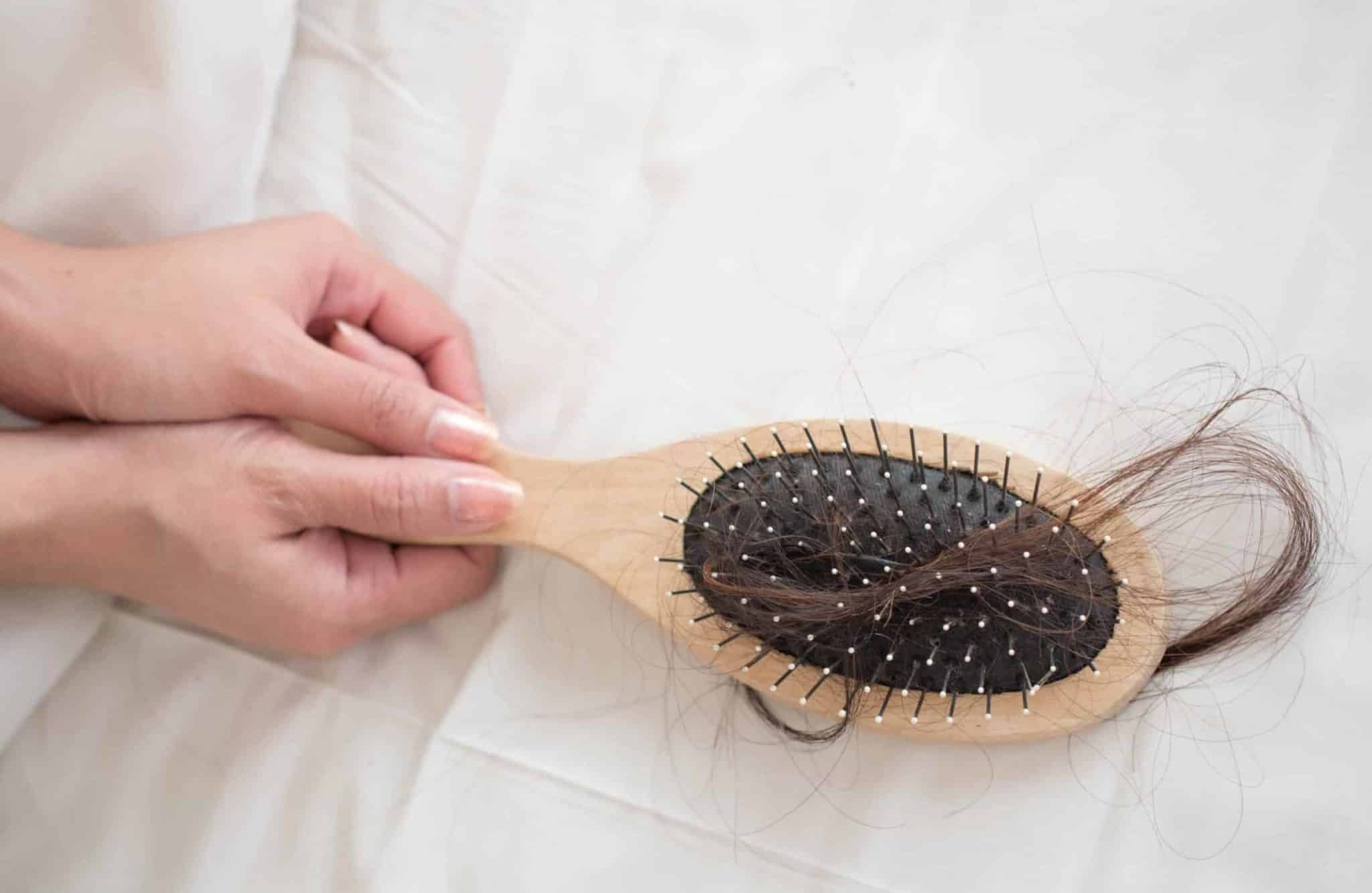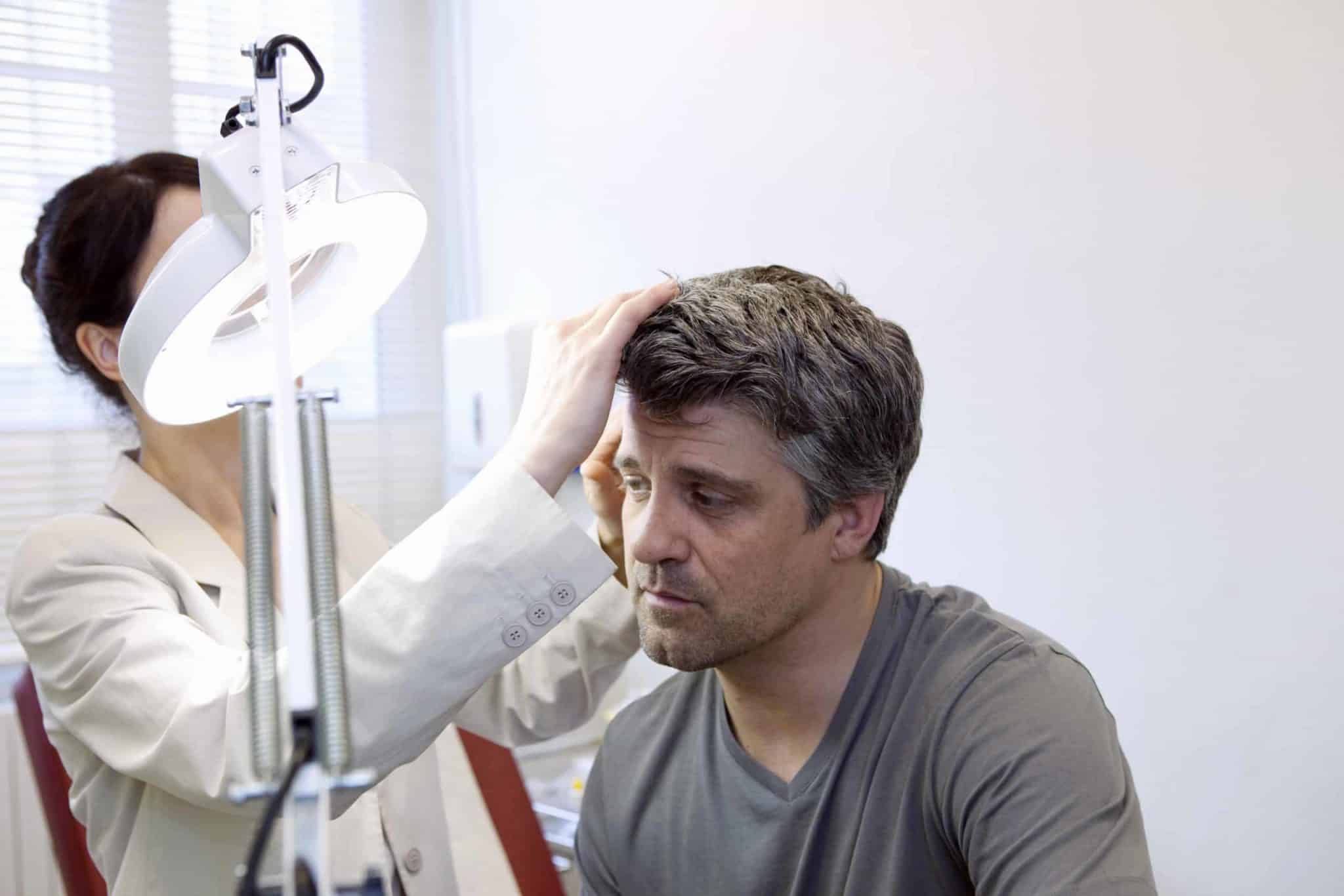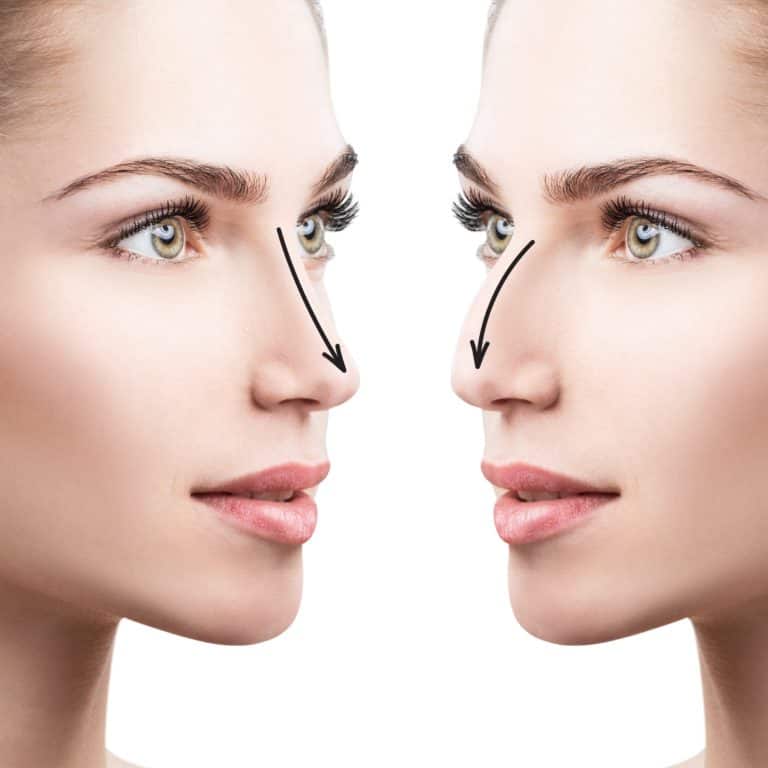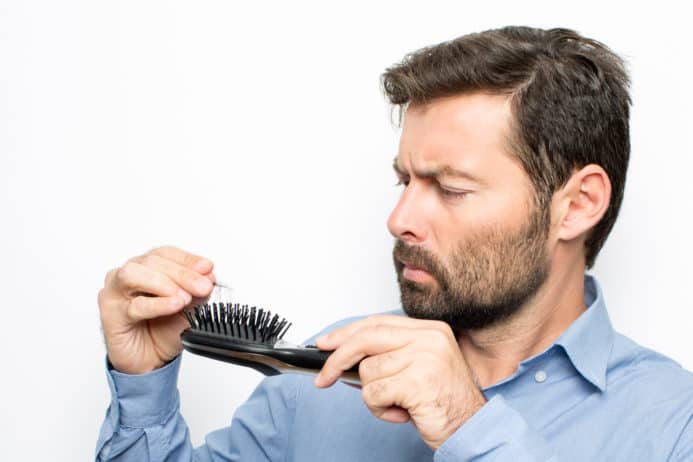Overview | Causes | Treatments | Prevention | Summary

Medically Reviewed April 2023, by Claire Clarke - Head of Surgical Services for The Harley Medical Group
How much hair loss is normal?
On average, we shed around fifty to a hundred hairs each day. But because there are around 100,000 constantly renewing hairs on the head, it isn’t bothersome.
However, some people can experience noticeable and sometimes permanent hair loss. Often this happens gradually with age, but if hair loss happens suddenly, or occurs in random patches, it can be a sign of a medical condition requiring treatment. It’s therefore important to speak with your doctor if you experience hair loss.
Hair loss in men
Gradual, permanent hair loss occurs with age in the vast majority of men. Referred to as androgenetic alopecia or ‘male pattern baldness’, it often develops around the hairline and on top of the head.
Hair loss in women
Androgenetic alopecia (also known as female pattern baldness, or female pattern hair loss) describes when women permanently lose hair with age. Unlike men, there is more of an overall effect of thinning hair. This tends to be most noticeable around the parting, with hair loss around the hairline being rarer in women.
Reasons for hair loss
We often get asked ‘why am I losing my hair?’. Well, the answer can range from a harmless part of the ageing process, to conditions that require medical treatment.
- Genetic hair loss
This is one of the most common reasons for hair loss. Like with many parts of our physical appearance, some men and women are more genetically disposed to hair thinning as they age. Hereditary hair loss is known as androgenetic alopecia, or male and female pattern baldness.
- Hormonal changes
Another one of the most common hair loss causes is hormonal changes—for example following childbirth, during menopause, or when women stop taking the contraceptive pill. Thyroid disorders such as hyperthyroidism and hypothyroidism can lead to hair loss in both men and women—but when treated, hair growth should return to normal.
- Stress
A common cause of hair loss is stress. Often hair falls out a few months after the body has been through a traumatic event. This is known as telogen effluvium and occurs when the hair remains in the natural shedding or ‘telogen’ phase of the growth cycle. It often occurs after shocks to the body, such as childbirth, major weight loss, and surgery—with emotional stresses such as bereavement also leading to hair loss. Fortunately, this type of hair loss is usually temporary and will grow back once the body has a chance to recover.
- Medications
A fairly common side effect, medications can lead to two types of hair loss: telogen effluvium and anagen effluvium. The latter refers to a significant loss of hair shafts in their growth phase and is often caused by very strong medication like chemotherapy. However, even in situations of complete body hair loss, it will usually grow back once treatment stops—although some people may report changes in colour and/or texture.
- Illness and infections
Many illnesses and infections (including psychological conditions such as trichotillomania) can lead to hair loss. Fortunately, this usually ceases once the cause is treated.
In some cases, hair loss is the result of an autoimmune disease called alopecia areata. The severity of hair loss can vary from a small bald patch—to total, long term (even permanent) body hair loss. There is no known cure, but treatments are available. It’s also not known what causes this medical condition—but as with most autoimmune diseases, it’s believed to be a genetic predisposition that is triggered by environmental factors.
- Nutritional deficiencies
Your hair is not essential to your body’s survival and is therefore often one of the first areas to signal a nutritional deficiency. The most commonly known deficiencies that can cause hair loss include iron, vitamin D, zinc, and selenium. And the best way to ensure you have optimum levels of essential vitamins and minerals is to eat a balanced diet. You may also wish to top up your diet with a good quality supplement from a reputable supplier. This is particularly important if you’re on a restricted diet—for example, gluten-free, dairy-free, vegetarian, or vegan.
- Tight hairstyles/harsh styling products
Styles that place stress on the roots of the hair, particularly those that remain in place for long periods (e.g. cornrows) can cause hair loss, known as ‘traction alopecia’. Harsh cleansing, styling, and colouring products, as well as hair extensions, can also cause hair loss. Fortunately, this type of hair loss is usually temporary.
- Smoking
Smoking causes poor blood circulation and interrupts the hair growth cycle by reducing the flow of oxygen, nutrients, and minerals that are essential for healthy hair. It also weakens the immune system, increasing a person’s chances of diseases and infections that cause hair loss. And while most hair loss is genetic, it’s believed that polluted air can exacerbate the process—with carcinogens obstructing the production of the protein that hair is made of.

How to stop hair loss
If permanent hair loss is causing you distress, you may consider hair transplant surgery.
At The Harley Medical Group, we offer this procedure to both men and women, and we use a specially developed test to identify the cause of hair loss before we begin. This assessment is very important, as failure to identify the reason behind hair loss could deem the treatment unsafe or ineffective.
Hair transplant surgery is carried out under local anaesthetic. It involves transferring hair follicles from parts of the scalp with most hair to thinning areas, or a bald spot/patch. This should result in noticeable growth around twelve weeks later, and has become an established procedure for rectifying the permanent hair loss resulting from male and female pattern baldness.
Please note that this procedure is not suitable for people with alopecia areata.
When to see a doctor
Hair loss can be a sign of underlying illness, so it’s important to consult your doctor when this occurs.
You should seek medical attention from your GP or dermatologist if:
- You experience sudden hair loss
- You have bald patches
- You are losing hair in clumps
- You scalp itches and burns
Speak to a patient advisor
How to prevent hair loss
- Avoid smoking
- Eat a healthy, balanced diet to maintain good hair condition and good general health
- Invest in a good quality multivitamin (especially if you are on a restricted diet)
- Avoid harsh hair styling products, excessive heat-based hair tools and tight hairstyles to reduce stress on the hair
Summary
- Hair loss is very common, particularly with age.
- Other causes include age, illness, medication, hormonal imbalances, major stress, nutritional deficiencies, tight hairstyles, or harsh hair products.
- Sudden hair loss (particularly in random patches) should be discussed with your doctor.
- Eat a balanced diet for optimum hair health
- Always discuss any hair loss related products, medications, or procedures with your doctor before trying them.
More Conditions

Saggy breasts
Sagging breasts or ‘breast ptosis’ is usually nothing more than a harmless, aesthetic feature. Breast ptosis often refers to lower appearing nipples, or those that point downwards and it can range from mild to severe...

Crooked nose
A crooked nose doesn’t follow a vertical, straight line down the centre of your face. Depending on the cause, crooked noses will have different degrees of crookedness and these could vary from subtle to more dramatic...

Loose skin
When people lose a large amount of weight, they can be left with excess skin, especially if they have lost weight quite rapidly. This can then negatively affect their quality of life and also be a source of low self-esteem and embarrassment...

